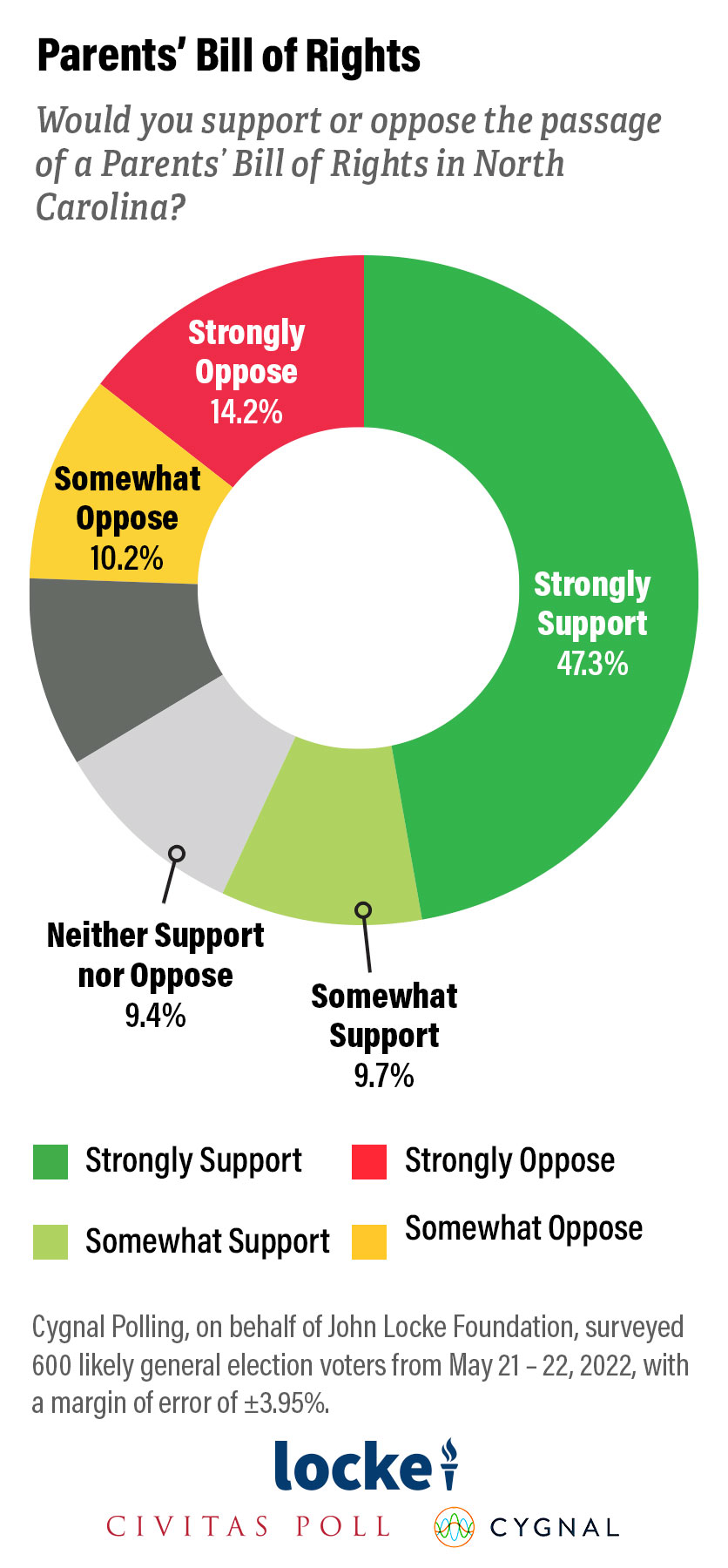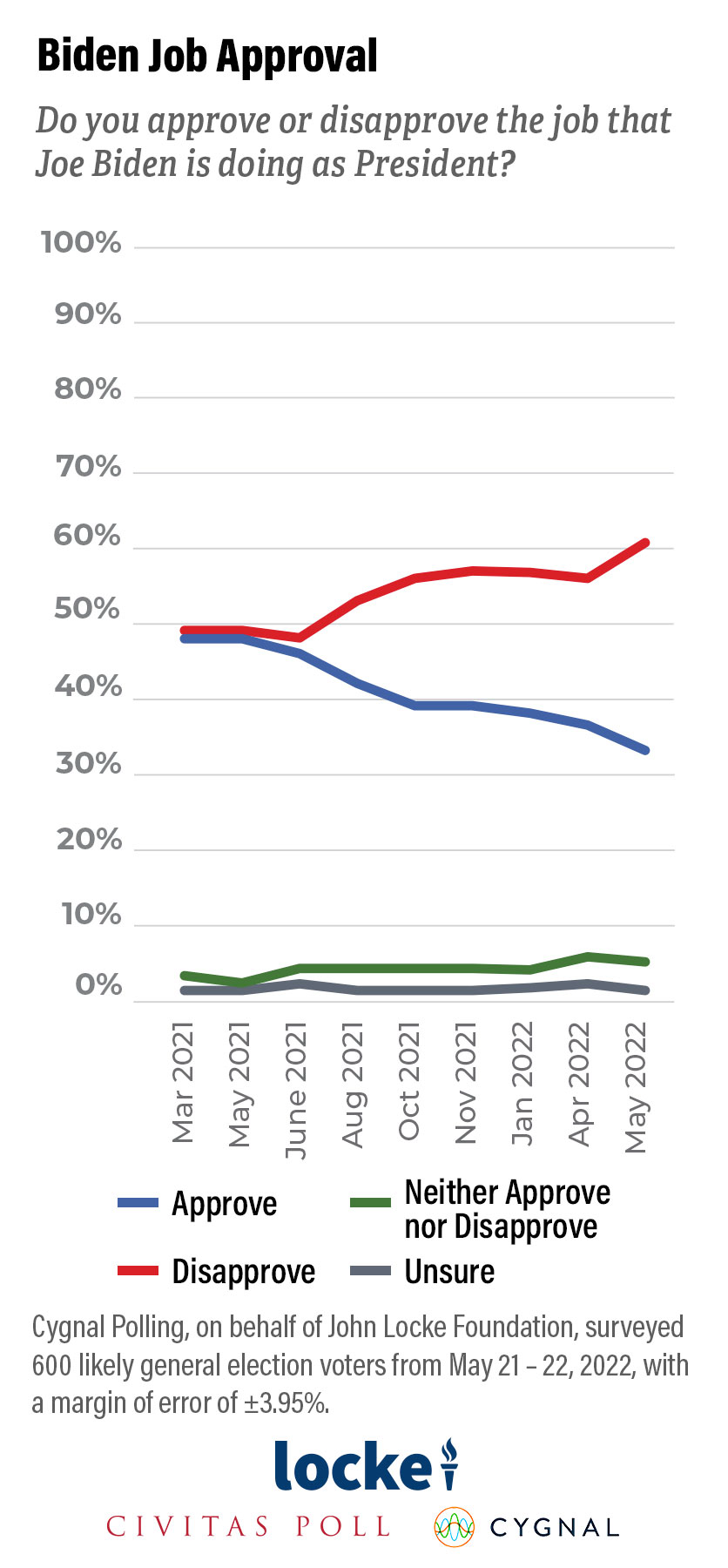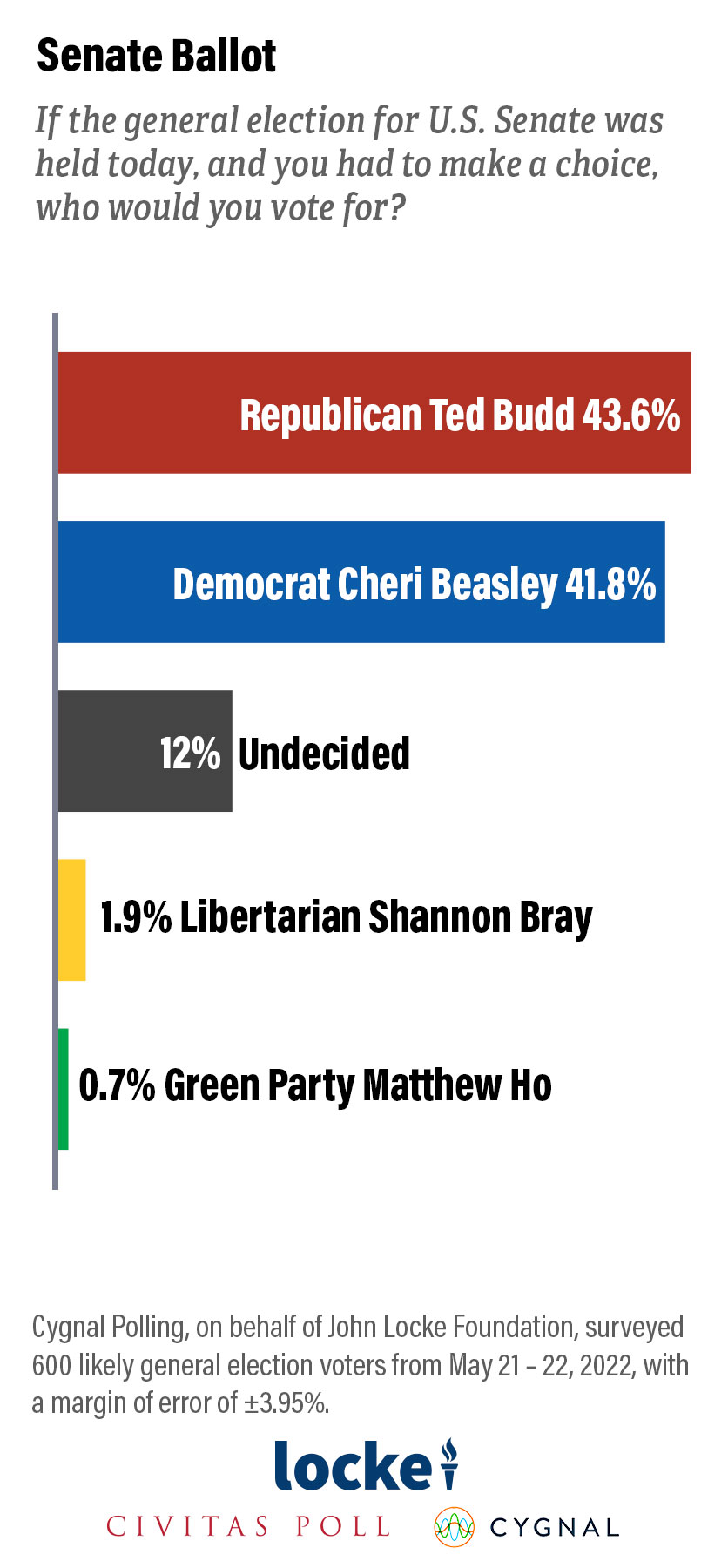May 26, 2022
RALEIGH — Fresh off their primary election wins, Republican Ted Budd and Democrat Cheri Beasley face a tight contest heading into the fall election for North Carolina’s open U.S. Senate seat. Budd leads Beasley, 44% to 42%, in the latest Civitas Poll of likely N.C. general election voters.
Libertarian candidate Shannon Bray gets 2% support in the poll, while Green Party candidate Matthew Hoh secures less than 1%. Budd’s two-point lead falls within the poll’s 3.95% margin of error.
The Republican Budd, current U.S. representative in North Carolina’s 13th Congressional District, leads Beasley, 50%-37%, among men. The Democrat Beasley, former chief justice of the N.C. Supreme Court, leads Budd, 46%-39%, among women.
Budd leads among voters under 35 years old (36%-32%), those from 35 to 49 (45%-36%), and those from 50 to 64 (47%-43%). Beasley leads among those 65 and older (50-43%). Budd leads Beasley among coastal voters (46%-40%), in central North Carolina (48%-37%), and from Charlotte to the west (45%-42%). Beasley leads in the Raleigh-Durham region (46%-38%).
“North Carolina is a perennial battleground state for presidential and Senate races, and this year will be no different, looking at this poll,” said John Locke Foundation President Donald Bryson. “While Ted Budd is in a strong position in this poll, he still trails Republicans on the generic ballot test by a few points, and it’s a long contentious journey to November.”
Republicans also hold advantages in the state’s two contested races for the N.C. Supreme Court. Republican Appeals Court Judge Richard Dietz leads Democratic colleague Judge Lucy Inman, 44% to 40%, in the race for an open Supreme Court seat. Republican Trey Allen, current general counsel of the N.C. Administrative Office of the Courts, leads incumbent Democrat Justice Sam Ervin IV, 46% to 40%, in the other race.
Bryson continued, “Democrats are in for a whale of a fight to maintain their majority on the North Carolina Supreme Court. Remember, Democrats have to be perfect in these races to have a majority, while Republicans are in a strong position and only need one win to take it.”
Republicans continue to hold leads in generic ballots for state legislative and congressional races. Without information about specific candidates, 49% of likely general election voters prefer a GOP candidate for the General Assembly, while 43% prefer a Democrat. Republicans hold a 50%-43% advantage over Democrats when voters are asked for their congressional preference.
About 57% of those surveyed support a Parents’ Bill of Rights for North Carolina, with opposition of just 24%. Sticking with education, 64% of likely general election voters say they have heard a lot about Critical Race Theory. Just 30% hold a favorable view of CRT, with 46% saying they disapprove of the concept. About 28% believe CRT is being taught in local schools, with 37% saying no and 35% indicating they are unsure.
The recent leak of a draft U.S. Supreme Court opinion has thrust abortion policy back into state and national headlines. Among those surveyed, 43% labeled themselves pro-choice and 40% pro-life. Some 15% refused to accept either label.
The poll showed 72% of likely voters had heard a lot about the leaked draft opinion, and 51% said they did not want to see the Supreme Court overturn the landmark Roe v. Wade abortion ruling. Some 34% approved of the Supreme Court overturning that 1973 decision.
When asked whether abortion should be legal or illegal, “legal” outpolled “illegal,” 51% to 42%. But just 23% supported legal abortion under all circumstances. About 32% said abortion should be illegal except for certain circumstances involving rape, incest, or the mother’s life. Another 28% supported legal abortions but preferred exceptions for cases involving minors and late-term abortions. In other words, nearly 70% of those polled supported some restrictions on abortion.
A plurality (46%) believe abortion should remain legal nationwide, while 20% would ban the practice nationwide and 25% believe the decision should be left to state governments. Voters are closely split on supporting pro-life (34%) versus pro-choice (36%) political candidates. Just 13% vote only for pro-life candidates, while 11% vote only for pro-choice candidates.
About 42% of likely general election voters favor more restrictive gun regulations in North Carolina, while 34% believe current regulations should stay the same, and 19% support loosening current restrictions. Almost 54% support the state’s current pistol permit process, with 27% opposing it. Of those surveyed, 45% would support a state constitutional amendment permitting people to openly carry a weapon, with 35% opposition to that idea.
This poll was fielded prior to the tragic school shooting at Robb Elementary School in Uvalde, Texas.
Methodology: This probabilistic survey was conducted May 21–22, 2022, with 600 likely general election voters, by Cygnal. It has a margin of error of ±3.95%. Known registered voters were interviewed via live phones, SMS, and email invitation. This survey was weighted to a likely general election voter universe.


